Oct 9, 2020
5 things which are far cheaper in Japan than back home
Any time there is a global cost of living survey conducted, Japan tends to feature towards the top of the list. This can seem incredibly daunting for those who are planning to move here - but I’m happy to say it’s not as dire as many people may think. Yes, some things in Japan certainly are more expensive than what I am used to back home, but there are a host of things which are significantly cheaper. Overall, I would say that it’s less expensive for my family of four to live in Japan than it is for us to live in either Australia or the United States, where my husband and I hail from.
I had a think about it, and there were five categories that I thought stood out as being much cheaper here than they would be back home. Without further ado, here they are…
Bottled water, soft drinks, and alcohol
This may be a random measure, but I think it’s useful. This data shows how expensive a bottle of water is in various countries around the world, measured in US dollars for consistency. Australia comes in eighth place on the list, with a bottle of water averaging out at $2.04 USD. I’d say that’s quite a conservative estimate too, since I’ve seen 600 ml refrigerated bottles at petrol stations and supermarkets priced closer to $3.50 - $4 AUD, or around $2.50 - $2.90 US.
Japan comes in 35th spot on the list, with a bottle of water only setting you back around $1 USD - and that's fairly consistent with what I see at convenience stores and in vending machines here in Japan. Often back home, I’d be reluctant to buy a bottle of water even if I was super thirsty, because it seemed so expensive for what it was. Here, I’ve learned to be more eco-conscious and try to carry my reusable bottle around with me, but it’s nice to know that it’s economical to buy a drink if I forget.
The same goes for alcohol. I’m partial to chu-hai, and I can often pick up a can for under 100 yen at my local supermarket here in Japan. One look at an Australian liquor store chain’s website reminds me that a can of beer (375 ml) is priced at around $5 to $6 AUD - that's around 400 yen, give or take a bit based on currency fluctuations.
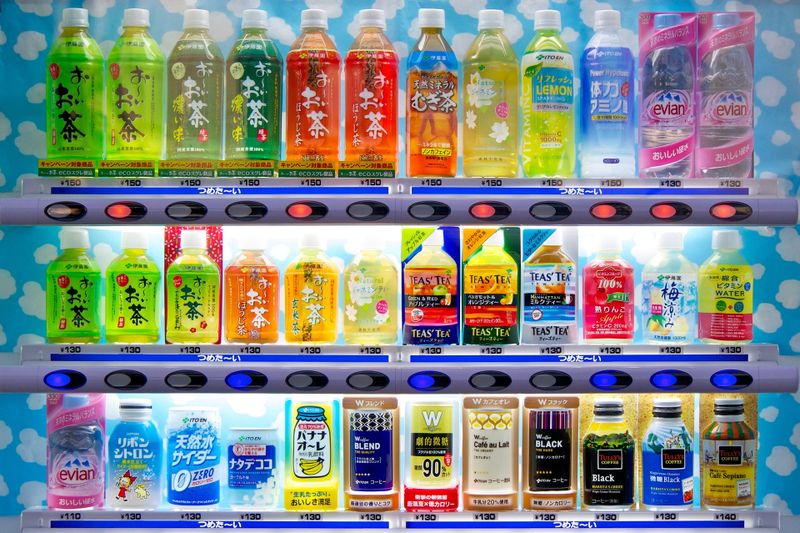
Hydration whilst on-the-go in Japan won't break the bank - and there are plenty of options available!
Glasses
I’ve worn glasses since I was nine years old, and have bought them in three different countries now - Australia, the United States, and here in Japan - so I have a general idea of prices. I honestly hated having to replace glasses in other places I lived, because it would run me around $300 for a pair of frames and the accompanying lenses...definitely not something I’d call cheap, but it was a necessity of life so I just had to roll with it.
Enter life in Japan, when the first time I went to a glasses store I was floored at just how cheap the glasses were - and they have a whole host of cute frames, too! I’ve bought glasses and lenses for as cheap as 5,000 yen (around $50 US), and one of the additional niceties about getting them here is just how fast the process is.
Back to that first time I bought glasses in Japan, the shop attendant told me they’d be ready in 10 minutes, and if I’d like to wait or come back. I honestly thought I’d misunderstood what they’d said, because on previous experiences in other countries I’d usually have to come back within a few days for them to be ready. There’s truly nothing like Japanese convenience.
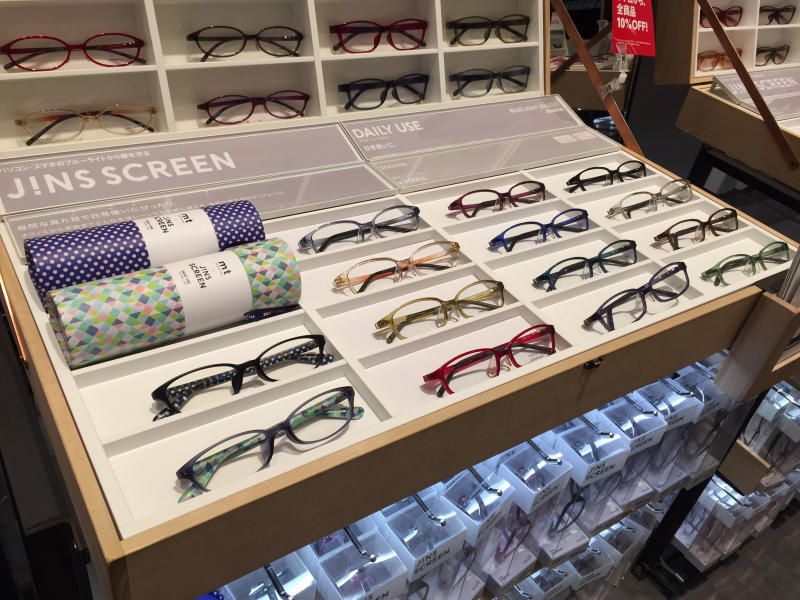
For the glasses and contacts wearers out there, you’ll be pleased to know that getting your optical care needs taken care of in Japan is extremely inexpensive (and extremely efficient!)
Seafood
Despite growing up in Australia, a country where people think we just “throw a shrimp on the barbie,” seafood is actually quite expensive compared to other sources of animal protein. I’d usually opt for meats like beef or chicken over salmon back home simply due to cost effectiveness. Here though, we find ourselves eating salmon several times a week because it’s cheaper in Japan than many other cuts of meat - and honestly, it’s probably better for our health than red meat anyway. We don’t have an oven here either, just a stove top with the ubiquitous fish grill, so it works out better in that sense!
For seafood lovers, there are also places like conveyor belt sushi restaurant chains (our favorite is Hamazushi), where you can get plates of various sushi for 100 yen and up. A cheap feed - and it’s food that would likely be classed as haute cuisine back home.
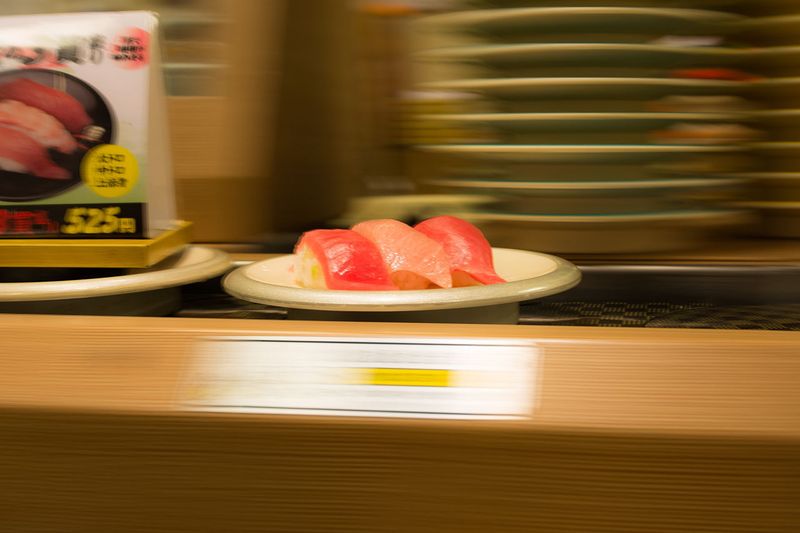
Fish is cheaper than many other forms of meat here - so if you’re a seafood lover you’re in luck.
Fast food restaurants
I’m not talking about Western chains when I talk about fast food being inexpensive here, as those are still quite pricey - the cost of a pizza from somewhere like Domino’s alone is enough to make my eyes water. However, there are a range of fast food spots in Japan which are super cheap, and in my opinion they are better quality food than your typical greasy burger and fries places. For instance, national chains like Yoshinoya and Sukiya have gyudon (beef over rice) bowls which come in varying sizes starting at around 400 yen. Another cheapie favorite for me is Saizeriya, a Japanese take on an Italian restaurant. The food is served quickly, although perhaps not as fast as “fast food”, and dishes are exceptional value for money. My go-to there is the penne arrabiata, which is 399 yen. I often find myself questioning how theses stores actually make money, because the prices are so low.
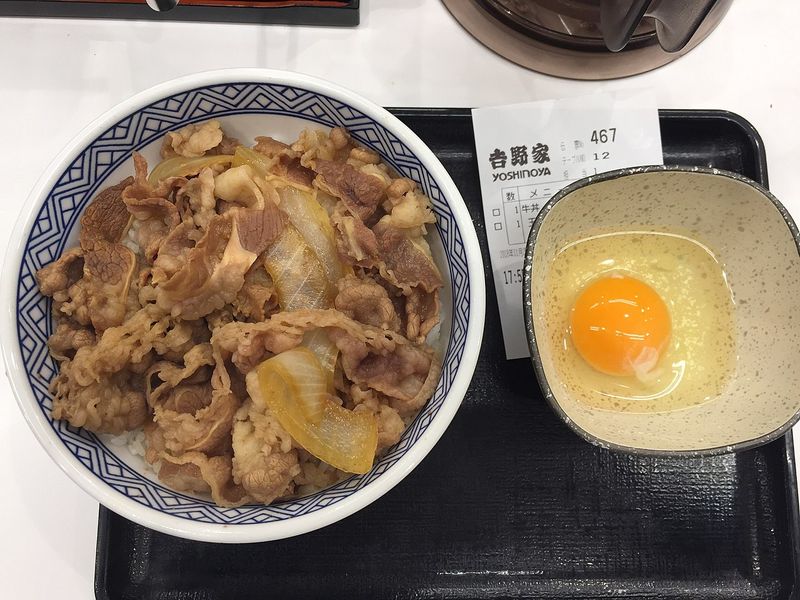
While Western-import fast food chains are often pricier than back home, Japanese-owned stalwarts like Yoshinoya and Sukiya provide cheap eats that are friendly on the wallet.
My rent
This is probably not going to be the case for those who live in urban areas of Japan, but for rural-dwellers, rent here can be exceptionally cheap.
We currently pay 58,000 yen a month in rent (around $550 US dollars at the time of writing), for a 6DK house in the Niigata countryside. Sure, it’s definitely not the newest house, and there are things we don’t love about it (it can be very expensive to heat and cool, for instance), but I can’t imagine renting a place for such a low price in Australia at all. We’re under 10 minutes walk from our local train station, which is part of the Joetsu Shinkansen line - and that means we can be in Tokyo within 90 minutes, or Niigata City in around 40. The convenience and accessibility to urban areas for the overall low cost of living is fantastic, plus we get a myriad of benefits from countryside living!
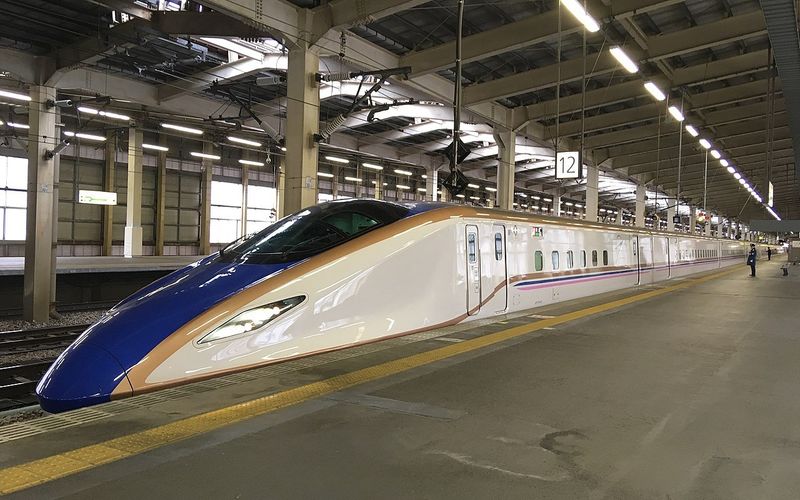
While urban areas in Japan often have a reputation for high living costs, countryside areas often have unbelievably cheap rents - and they’re not always super isolated areas, either.
What items or aspects of life in Japan do you find cheaper than what you’d expect back home? Do you find your overall cost of living here to be more or less expensive?
Author: genkidesu
Greater insights and deeper experiences from voices in the City-Cost community.



2 Comments
TonetoEdo
on Oct 9
Two major expenses I save a great deal on here are prescription eyeglasses and rent. In my home country, Canada, I paid a whopping $1000 for eyewear. My prescription is complicated, but not that complicated. Canada's eyeglasses market has little competitive pricing and strict regulation. Here in Japan, I got the same prescription for a little over 20,000 yen. I've managed it for just 10,000 yen at times. Rent, too, in urban Canada can be insanely high. One of my friends in Vancouver paid over $1000 for a poorly maintained basement one-bedroom suite. I live in suburban Chiba Prefecture where I paid 65,000 yen for an older but well maintained 4LDK house. The second-floor one-bedroom I live in now was refurbished before I moved in, and the rent is 60,000 yen.
WenceslausHybiscus
on Feb 7
Most rural, inexpensive homes are cheap because they are old, unsightly, uninsulated, and in areas devoid of services. Most foreigners in Japan are single people, foot-loose and fancy-free. A big old house in the countryside is great for a family, but you have to drive everywhere. You are car-dependent. You are polluting the atmosphere. What’s it like living in Urasa or Yuzawa? Are either of these places a “pearl of great price”, so to speak? I like both of those places. Thank you for your opinions.